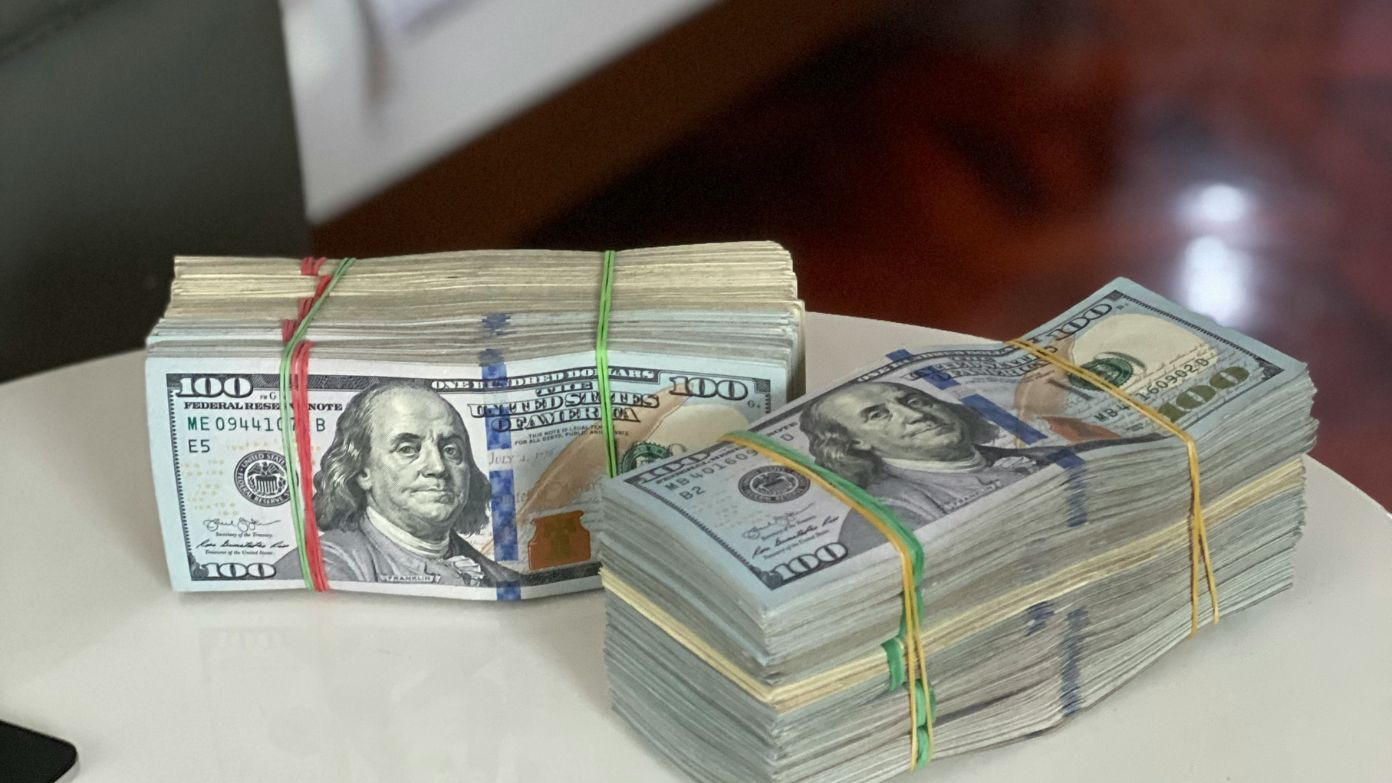At an international investment conference in Miami, U.S. President Donald Trump revealed that his administration is reviewing a proposal to directly distribute savings identified by the Department of Government Efficiency (DOGE) to American taxpayers. The initiative, spearheaded by Tesla and SpaceX CEO Elon Musk, aims to reduce wasteful government spending and enhance operational efficiency.
Trump highlighted the possibility of allocating a portion of these savings directly to citizens, stating, “There’s even under consideration a new concept, where we give 20% of the DOGE savings to American citizens, and 20% goes to paying down debt.” While the idea is still under evaluation, it has quickly gained traction among both policymakers and the public.
A Social Media Proposal Gains Traction
The idea of a so-called “DOGE dividend” originated from James Fishback, CEO of Azoria Partners, an investment firm. Fishback proposed the concept in a four-page memo shared on social media platform X, suggesting that 20% of DOGE’s savings be redistributed to taxpayers. His proposal caught Musk’s attention, prompting him to reply, “Will check with the President.”
Following this exchange, Trump confirmed that the administration is seriously considering the idea. Fishback’s calculations suggest that if DOGE reaches its best-case savings target of $2 trillion by July 2026, the payout could amount to a one-time $5,000 check per tax-paying household. Meanwhile, another 20% of the savings would be allocated to reducing the U.S. national debt, which currently exceeds $36 trillion.
Despite the excitement surrounding the proposal, there are still many unanswered questions. Trump did not specify what would happen to the remaining 60% of identified savings. However, he emphasized the importance of reducing national debt, stating, “If it were a real estate balance sheet, the debt is tiny, but we still want to pay it down. We don’t look at it as a piece of real estate. It’s America.”
Transparency and Controversy Surrounding DOGE
Although DOGE has reported approximately $55 billion in savings, only $16.6 billion has been publicly accounted for. Some critics have raised concerns over transparency, particularly after a miscalculation was discovered in a reported $8 billion contract saving, which turned out to be only $8 million. Such discrepancies have led to skepticism about the accuracy of DOGE’s reported savings and its overall accountability.
Musk, who has positioned DOGE as a watchdog against government waste, acknowledged errors in reporting. He admitted, “Some of the things I say will be incorrect and should be corrected,” assuring the public that the organization is actively working to address these issues.
Beyond transparency concerns, DOGE’s cost-cutting strategies have sparked significant controversy. The initiative has aggressively reduced government contracts, terminated thousands of employees, and recommended shutting down agencies such as the U.S. Agency for International Development (USAID) and the Department of Education. Critics argue that these measures align more with ideological objectives than a genuine effort to eliminate wasteful spending.
Despite these concerns, the Trump administration continues to support Musk’s approach. Treasury Secretary Scott Bessent described DOGE’s work as “a very good start,” while Trump praised Musk’s efficiency, stating that the initiative is “finding billions—soon to be hundreds of billions—of dollars’ worth of fraud.”
Will Taxpayers See a Payout?
If implemented, the DOGE dividend could provide a financial windfall for tax-paying Americans. Fishback argues that returning a portion of government savings to citizens would strengthen public confidence in the tax system and incentivize workforce participation.
However, key logistical and legal challenges remain. Would Congress need to approve the measure? Can the projected savings be realized at the scale promised? And given Musk’s extensive government contracts—such as those held by SpaceX—could potential conflicts of interest arise in his oversight of federal budget cuts?
For now, the DOGE dividend remains an idea under review. While the proposal has captured public attention, its feasibility is still uncertain. Whether it results in real money in Americans’ pockets or becomes another high-profile policy debate remains to be seen.
